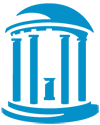The Microsoft Scholars met August 9-13, 1997 to review the progress of the introduction
of technology in higher education and to share their thoughts and concerns for the future.
I posed two questions at the beginning of the meeting:
- What does it mean to systemically integrate technology into teaching and learning beyond the use of general productivity applications (e.g., PowerPoint in the classroom)?
- What curriculum would a professional development program for faculty consist of in order to accomplish #1?
Although the Scholars addressed these issues at the meeting, they quickly advised me that there was a much more important issue to be discussed. The Scholars believe that there are still people in the academy who think that technology does not need to be incorporated into their daily activities (i.e., teaching, research, service or administration). Given the overwhelming evidence of the importance of technology in every other sector of the U.S. and global economy, the Scholars believed that the academy needs to come to terms with the fact the appropriate use of technology has a place for every individual in every area of higher education.
To this end, the Scholars identified three areas that represent the minimum level of skill and knowledge required of every member of the higher education community (i.e., students, faculty and staff). The requisites for choice are that they be within the reach of all colleges and universities and be relevant to all sections of the academy rather than discipline specific. The three areas are word-processing, electronic mail (e-mail), and Internet skills.
Word-processing Skills
One of the major currencies of higher education is information. In the skills area, the Scholars identified word-processing as the major vehicle. Regardless of the particular academic discipline, all community members need a basic set of word-processing skills in order to effectively communicate with others. These skills include the ability to create, revise, edit, and distribute information. In addition, individuals need to have the capability to continue to improve their skills, as their information sharing needs become more robust (e.g., as they want to distribute information on the world-wide-web).
E-mail Skills
There was general disagreement among the Scholars on the inclusion of e-mail skills. They argued not about its inclusion, but rather about whether e-mail might even be the most important skill for education. The Scholars believe that e-mail is quickly becoming a critical skill for all members of the academy. They agree that access is no longer a barrier to most members of the academic community and that there are certain electronic messaging skills that all members of the community should master--the ability to reply, send, forward, attach files, and manage mail messages.
Internet Skills
The Scholars consider the Internet as a critical vehicle for disseminating information and a primary information repository. The Scholars believed that for all members of the academic community, there was an obligation by colleges and universities to provide access and for these members to use the world-wide-web to find and utilize resources.
The Scholars identified a number of primary Internet skills needed by every member of the academic community. Foremost is the ability to use a browser and a search engine and be able to use search strategies, mark favorites, and capture material. In addition, everyone needs to understand copyright, intellectual property, and privacy issues relating to the Internet.
Conclusion
Although word-processing, e-mail, and Internet skills are not leading-edge tools of the 21st Century educator, they are part of the primary tool-set for all academy members. When I was a student, every freshman, to be successful, needed proficiency in library skills in addition to the ability to produce a cogent report. Word-processing, e-mail, and Internet skills should be added to this list, as they have become the new tools for today's classroom.
downloadable pc gamespc game downloadsplatform gamesshooter gamespc gameshidden objects gamesmarble popper games

